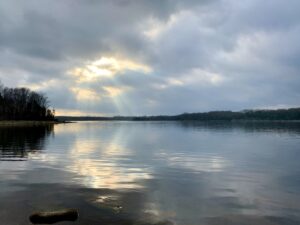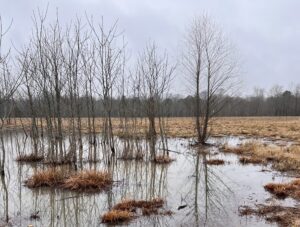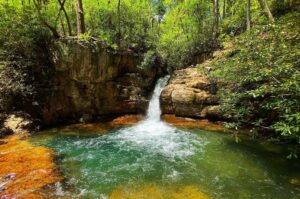The Tennessee Department of Environment and Conservation has mapped polluted waterways across the state. Tennessee boasts about 60,000 miles of streams and rivers, along with 29 reservoir lakes. The state agency has been monitoring their water quality for decades and periodically releases new data.
Wildlife groups plan to bring back a woodpecker to Tennessee
Tennessee’s wildlife and environmental agencies plan to bring back a species no longer found in the state: the red-cockaded woodpecker.
For the locals, their fight against a proposed landfill is more than ‘a local matter’
Grassroots activism is on the rise in Scott County, where a new landfill could have devastating effects on the environment. Despite strong community opposition, some state legislators say they don’t want to get involved.
The most radioactive place in East Tennessee has been cleaned up, says EPA
After radioactive leaks in the 1970s, the American Nuclear Corporation abandoned its Clinton, TN site. It sat empty for decades until the EPA stepped in. Cleanup is now complete.
Bill to open more Tennessee wetlands to development advances with legislative amendment
Tennessee lawmakers are considering a bill to remove protections for certain types of wetlands across the state to financially benefit developers.
Wetlands in Tennessee under threat as lawmaker proposes another bill to cut protections
If passed into law, the measure would benefit developers, making construction easier and cheaper on some Tennessee wetlands.
Wetlands lessen floods. Tennessee lawmakers plan to erode the regulations that protect them.
State lawmakers proposed a bill to remove protections on more than half of Tennessee’s wetlands. That bill was defeated, but another could be coming.
Tennessee officials are worried about wetlands. Here’s why.
Earlier this year, the state legislature considered a developer-backed bill to remove regulations on more than half of Tennessee’s wetlands.
Tennessee creates new office for ‘outdoor recreation’
A new office within Tennessee’s state environmental agency will be tasked with getting people outdoors.
A small Tennessee town’s sewage system might be polluting the Duck River
For at least three years, the wastewater treatment plant in Chapel Hill has repeatedly violated state pollution limits for treated sewage discharges.










